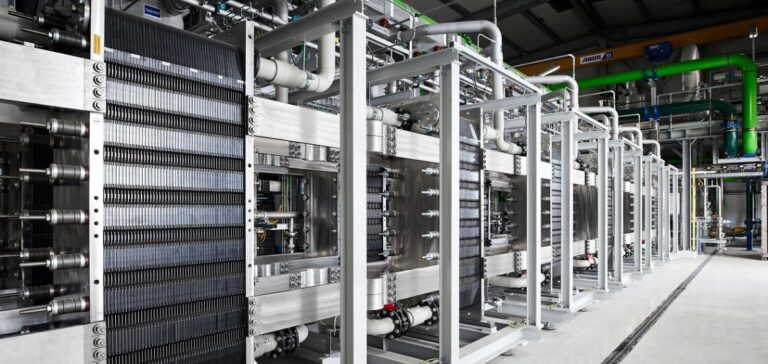Germany is stepping up its commitment to the hydrogen sector with the allocation of 619 million euros to three major projects led by RWE. This joint initiative by the federal government and the states of Lower Saxony, North Rhine-Westphalia and Mecklenburg-Vorpommern marks a significant step in the country’s energy transition.
Electrolysis projects in Lingen and Storage in Epe
In Lingen, a 300 MW electrolyser will be built as part of the GET H2 Nukleus project. This project, divided into three 100 MW units, aims to start producing green hydrogen as early as 2025. The financing also includes a storage facility at Gronau-Epe, essential for managing fluctuations in hydrogen production.
Development of the HyTechHafen Project in Rostock
A third project financed is the 100 MW electrolyser at the port of Rostock, as part of the HyTechHafen Rostock project. The project, developed by a consortium including ROSTOCK PORT GmbH, RheinEnergie AG, EnBW Neue Energien AG, and RWE Generation SE, is scheduled for operational production in 2027.
Government support and Vision d’Avenir
Funding is structured with 70% provided by the federal government and 30% by the states involved. These projects have been recognized by the European Commission as Important Projects of Common European Interest (IPCEI), enabling them to be financed. Markus Krebber, CEO of RWE AG, expressed his support for the initiative.
Impact and outlook
These projects will enable Germany to increase its hydrogen production and storage capacity, essential for meeting industrial needs. The implementation of these facilities will contribute to the creation of a robust hydrogen infrastructure, ensuring a reliable supply for businesses.
This financing strategy reflects Germany’s commitment to consolidating its position in the hydrogen sector, attracting investment and strengthening industrial competitiveness. The Lingen, Gronau-Epe and Rostock projects are concrete examples of this proactive policy.






















